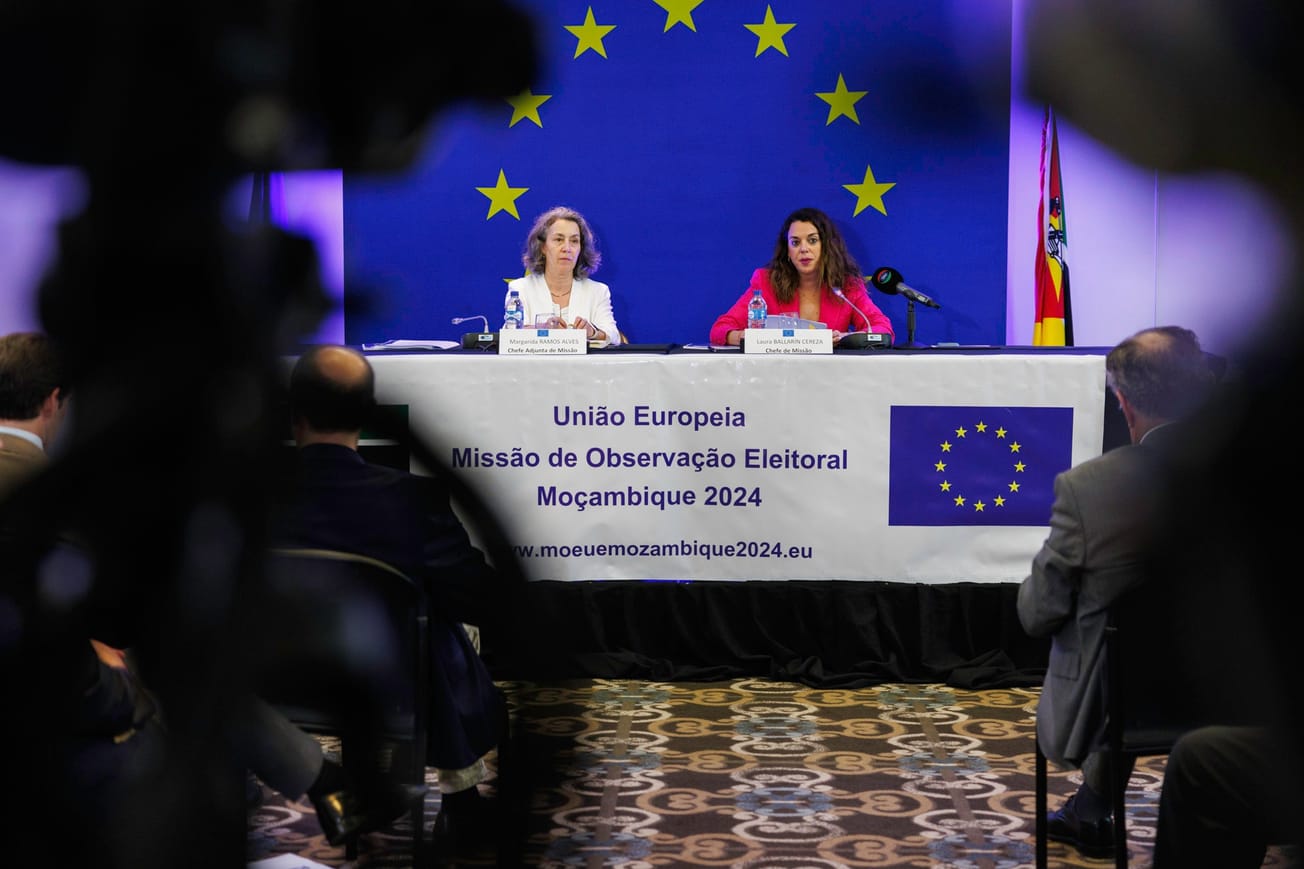A mysterious propaganda campaign in favour of Mozambique’s ruling party Frelimo has been going on for nearly two months in order to support Frelimo’s claim that it won last month’s elections and to discredit the opposition and protesters, who say that there was widespread vote-rigging.
The campaign in support of Frelimo and its presidential candidate, Daniel Chapo, has been led by several organisations, some of which, including one called “More Transparency”, claim to be impartial election observers. However, little is known about these bodies, and some genuine election observers believe them to be fake.
A startling recent case emerged on social media on Friday 8 November, in the shape of a magazine called MozLeaks containing just one article, claiming that the American intelligence service the CIA and embassies such as the Netherlands, Switzerland and the European Union sponsored “vandalism” in the city of Maputo, during the post-election demonstrations.
The magazine, which has not provided any evidence of its accusations, is anonymous. However, Zitamar News found through the document’s metadata that it was created on 7 November by someone called Egas Mulate.
The name matches that of a graphic designer at the newspaper Correio da Matola, whose editorial director is Lázaro Bamo, and which employs Américo Matavele as sub-editor. Both Bamo and Matavele are members of Frelimo, and Matavele also works in communications and marketing for President Filipe Nyusi’s office. They were previously members of the so-called G40, a group created under former president Armando Guebuza to defend the Frelimo government and demonise the opposition, according to weekly newspaper Savana.
Correio da Matola's editorial staff also includes Anselmo Sengo, editorial director of Público, a newspaper owned by Frelimo’s business arm SPI.
MozLeaks’ accusation of “subversion” supported by “external agents” came a day after Alcinda de Abreu, a member of Frelimo's powerful Political Commission, told a press conference that the demonstrations taking place in the country could be part of an initiative by foreign countries that want to oust former so-called liberation parties on the African continent, which took part in independence struggles, from power.
In the same vein, an anonymous Facebook page called Olhar Moçambique (Observing Mozambique) wrote that Thursday’s march called by opposition presidential candidate Venâncio Mondlane was aimed at “bringing down the incumbent government led by Filipe Nyusi” and that “dialogue and tear gas” had prevented a “coup d'état”. The same type of content is published by another anonymous Facebook page, Sociedade Democrática (Democratic Society). Both pages were created on 30 October.
Zitamar sent questions to an email address that appears in the description of the Observing Mozambique page, but did not receive a reply. The page itself follows three other pages or accounts: Democratic Society, the official page of President Nyusi, and the account of Julião João Cumbane, a noted Frelimo propagandist.
Biased observers
Another organisation that sprang up in the midst of the elections is Mais Transparência (More Transparency), whose activity consists of echoing the results released by official electoral bodies, who say that Frelimo came out on top in all the elections held last month. Coincidentally or not, its name is a close echo of Mais Integridade (More Integrity), a consortium of credible civil society organisations which came together to monitor this year’s elections.
More Transparency’s first Facebook post was on 1 October, eight days before the elections. Unlike most NGOs, its website does not mention who its funders are. Its executive director is political analyst Bitone Viage, who told Zitamar that More Transparency operated with its own funds donated by group members. During the election campaign, a pro-Frelimo account on X (formerly Twitter) published a video in which Viage said that "Chapo is the hope of [Mozambican] youth". He has also been invited as a commentator on TVM, the state-owned TV network which takes a pro-government and pro-Frelimo line.
On polling day itself, observers from the National Youth Council (CNJ), a Frelimo-dominated organisation, were seen observing the elections, notably with thousands of observers in Zambézia province.
The election authorities in Zambézia were unable to accredit more than 1,000 independent observers who applied for accreditation, according to the NGO the Centre for Public Integrity (CIP), but thousands of credentials were issued for the CNJ. The CIP said its correspondents reported that CNJ observers abused their special voting rights In Zambézia to vote several times at different polling stations.
In the district of Maganja da Costa, a CNJ observer was beaten up on charges of attempting to bribe polling station staff to facilitate fraud in favour of Frelimo, according to a report by private television network STV.
Immediately following the elections on 9 October, graphics circulated with false data giving victory to Frelimo and Chapo. The graphics were apparently produced by two unknown organisations, the “Civil Society Observers’ Office” and the “Parallel Vote Count Movement”.
Numerous people who observed the elections for credible observer bodies told Zitamar that they had never heard of such organisations, and doubted that they really existed.









